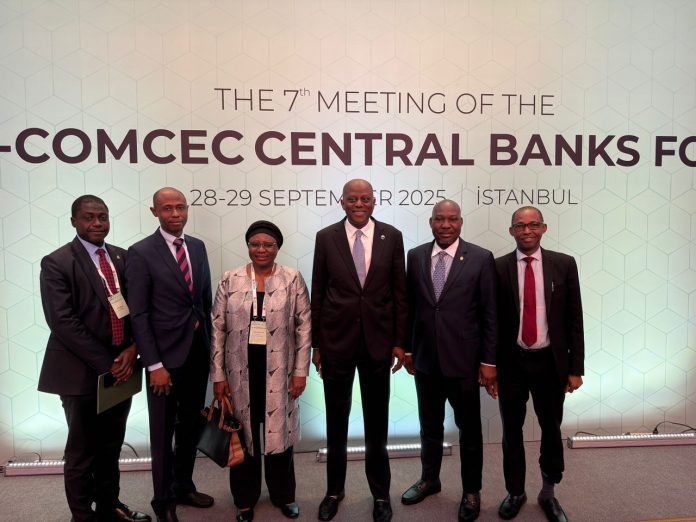Nigeria’s economic landscape is showing signs of renewed vitality, driven by steady policy reforms, disciplined fiscal management, and growing global confidence in its markets. September stood out as a turning point, offering tangible proof that the nation’s long-term commitment to economic stability is beginning to yield results.
In a landmark move, the Monetary Policy Committee (MPC) reduced interest rates for the first time in five years. The decision reflected not only a period of sustained disinflation — five consecutive months of easing price pressures — but also stronger foreign reserves and an increasingly stable financial system. Economists have described the rate cut as a cautious yet optimistic signal that Nigeria’s macroeconomic fundamentals are improving after years of volatility.
Beyond monetary policy, government officials and private sector leaders engaged in a series of strategic dialogues aimed at consolidating these gains. In Abuja, senior executives from J.P. Morgan met with top policymakers as the global financial institution outlined its plans for a significant expansion in Nigeria. The move is widely viewed as a strong vote of confidence in the country’s reform agenda and its commitment to strengthening transparency, regulation, and investor protections.
Meanwhile, in Lagos, the Eurocham Nigeria Business Forum brought together leading European investors and business executives to discuss opportunities in Nigeria’s evolving economy. Conversations focused on key priorities such as bank recapitalisation, curbing inflation, enhancing foreign direct investment, and creating a more predictable regulatory environment.
Together, these developments underscore a broader narrative of recovery and resilience. While challenges remain — including the need to sustain disinflation, manage exchange rate volatility, and deepen productivity — September’s milestones highlight a shift in sentiment both at home and abroad.
Analysts say the combination of prudent policy decisions and strengthened engagement with global partners could mark the beginning of a more stable economic era for Nigeria — one built not on isolated interventions, but on consistent reform, credible leadership, and the trust that follows.




